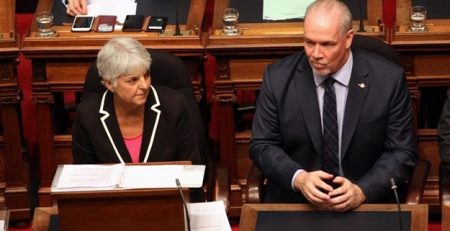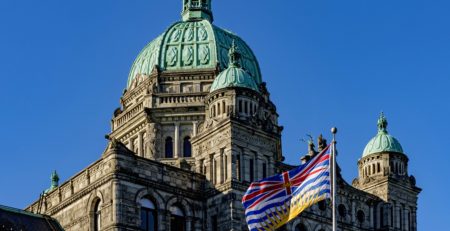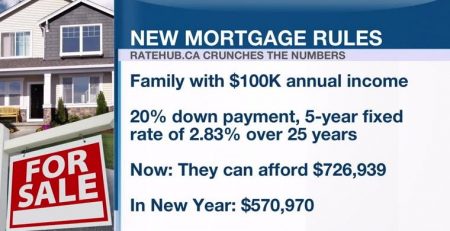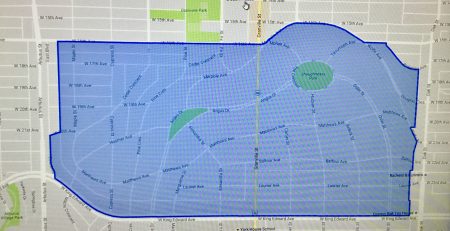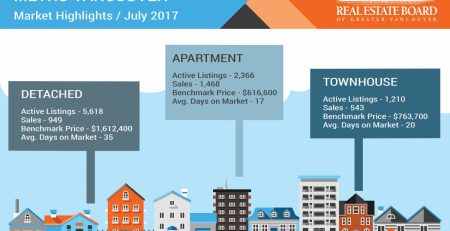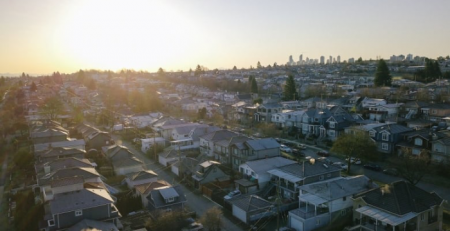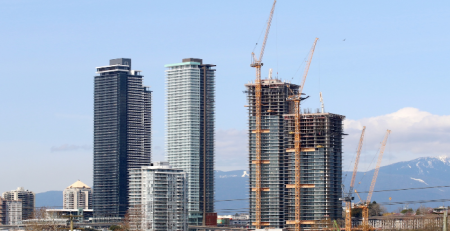A new wave of buyers expected to hit B.C. real estate market
[The Globe and Mail – July 2, 2021]
Throughout the pandemic, home sales soared, and in some markets, set record prices. Industry insiders say that postpandemic, the B.C. housing market is expected to boom again – driven by Canadians returning home and the federal government’s plan to bring in more than 1.2 million immigrants by 2023.
The wave is already happening according to Jacky Chan, president of BakerWest Real Estate Inc., who works closely with developers. BakerWest is the new Vancouver division of Baker Real Estate, Canada’s largest preconstruction sales and marketing agency, Mr. Chan says.
Mr. Chan says Baker’s sales are showing dramatic signs of a new wave of buyers.
Baker is part of Peerage Realty Partners (a subsidiary of Peerage Capital), which did more $20-billion worth of sales in a year, and Mr. Chan says a lot of buyers are Canadians returning from Hong Kong. Vancouver is the favoured destination for the 300,000 or so passport holders who want to escape political instability in Hong Kong, as well as the high numbers of newcomers to Canada. That demand on the region will only push prices up – and the likelihood of supply outpacing that demand isn’t realistic, he says.
“It’s always been a wish, and it’s definitely been a misconception that prices will come down,” Mr. Chan says. “Prices will come down only in one way, and it goes back to supply and demand. If there is way more supply than there is demand, prices come down. If there is way less demand but the same supply, prices come down. Those are the only two ways. And where do we see that happening? Nowhere.
“In all honesty, the pandemic actually helped the Canadian real estate market.”
The transactions he is seeing are close to the levels that the market saw at the peak in 2017. His company is doing around $55-million in transactions a day, a historical high in Vancouver and Toronto.
“Demand is naturally increasing because of natural population increase and migration, and also with recent Canadian immigration policy,” Mr. Chan says.
“A lot of people are coming back from all over the world. We are seeing that every single day. … The true factors creating the price escalation are actually Canadians coming back from abroad, and a shortage of supply.”
People from Hong Kong who came to Canada and then returned to Hong Kong will be looking to purchase properties again, he adds. There is a belief that many of the people who returned to Hong Kong may already own properties in Vancouver, but Mr. Chan isn’t seeing that. Instead, he says that many of the people who later returned to Hong Kong sold off their Vancouver properties so they could buy in Hong Kong.
“Price increases in Hong Kong are even higher than Canada, so now when they come back, they will sell off property in Hong Kong and put it into Canada. And now their net worth has increased dramatically over the last 10 years, so now their purchasing power is way, way higher than when they left,” he says.
“If you are in the real estate industry, that is a big positive contribution to the uptick of the market.”
Mr. Chan says more immigration and fewer regulations around home ownership will boost the economy and make housing more affordable. People who are moving here to purchase primary homes and investment properties will raise rents if regulations make properties more difficult to buy.
“The Canadians who are returning to live are definitely buying their primary homes, and ones that have financial capacity – which a lot of them do – also purchase investment properties. With the escalation of real estate prices, real estate ownership is becoming more and more difficult. And when that happens, real estate investments and rental returns increases proportionally with the scarcity of real estate ownership,” Mr. Chan says.
“We see it in other metro cities around world, in Hong Kong, Tokyo Taipei, London, Sydney, Paris, Manhattan and L.A. We see this time and time again: When the density of a city increases, the value goes up per square foot, and the wealth goes up because [people] own,” he adds. “But the people who study [in the city] and the people who work there still have to live there because usually the places with a higher density also have more opportunities, in terms of work and commerce, education – that’s why it draws people in.
“And that is why when real estate ownership is harder, the rent actually goes up with it.”
For that reason, the urban core stays expensive as it grows, with relatively more affordable housing opening up outward like in the suburbs.
“You can only build more stuff from expanding out from the radius. So let’s say you have an epicentre, you can build out from there and the prices get equalized as supply increases,” Mr. Chan says. “However, that epicentre gets denser and denser and that in itself gets more expensive. You have more choices on the fringe.”
A 2017 paper called The economic effects of density, by Gabriel Ahlfeldt and Elisabetta Pietrostefani, explores the theory that increased density does not automatically result in reduced housing costs, and could in fact achieve the opposite effect.
Although density makes cities more innovative and dynamic, higher demand makes them more expensive, according to the report. In their study, the authors found that a 1-per-cent increase in density led to an increase in wages of $280 and an increase in rent of $485.
“Density has important positive amenity and resource implications, but also appears to create a scarcity rent, which harms renters and first-time buyers,” the authors say.
“And that is why when real estate ownership is harder, the rent actually goes up with it.”
For that reason, the urban core stays expensive as it grows, with relatively more affordable housing opening up outward like in the suburbs.
“You can only build more stuff from expanding out from the radius. So let’s say you have an epicentre, you can build out from there and the prices get equalized as supply increases,” Mr. Chan says. “However, that epicentre gets denser and denser and that in itself gets more expensive. You have more choices on the fringe.”
A 2017 paper called The economic effects of density, by Gabriel Ahlfeldt and Elisabetta Pietrostefani, explores the theory that increased density does not automatically result in reduced housing costs, and could in fact achieve the opposite effect.
Although density makes cities more innovative and dynamic, higher demand makes them more expensive, according to the report. In their study, the authors found that a 1-per-cent increase in density led to an increase in wages of $280 and an increase in rent of $485.
“Density has important positive amenity and resource implications, but also appears to create a scarcity rent, which harms renters and first-time buyers,” the authors say.
“And that is why when real estate ownership is harder, the rent actually goes up with it.”
For that reason, the urban core stays expensive as it grows, with relatively more affordable housing opening up outward like in the suburbs.
“You can only build more stuff from expanding out from the radius. So let’s say you have an epicentre, you can build out from there and the prices get equalized as supply increases,” Mr. Chan says. “However, that epicentre gets denser and denser and that in itself gets more expensive. You have more choices on the fringe.”
A 2017 paper called The economic effects of density, by Gabriel Ahlfeldt and Elisabetta Pietrostefani, explores the theory that increased density does not automatically result in reduced housing costs, and could in fact achieve the opposite effect.
Although density makes cities more innovative and dynamic, higher demand makes them more expensive, according to the report. In their study, the authors found that a 1-per-cent increase in density led to an increase in wages of $280 and an increase in rent of $485.
“Density has important positive amenity and resource implications, but also appears to create a scarcity rent, which harms renters and first-time buyers,” the authors say.


